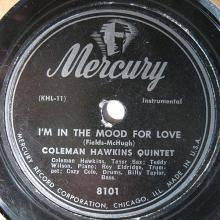
Jazz history resonates in jazz recordings. Jazz Studies Online staff is working on a project that will provide rich, reliable data on recordings that can help unlock and elucidate the stories they can tell about jazz. J-DISC will be a fully searchable online database with editing and commentary by noted jazz scholars. It will take full advantage of digital communications tools and methods to transcend the limits of current discographic sources and preserve, enhance, and provide access to discographic data for study and research. The project's initial phase, which has received generous funding from the Andrew W. Mellon Foundation, is a test version. The final database is now accessible and usable to all Internet users at jdisc.columbia.edu. In the renewed grant phase, we are expanding contributors, developing a business plan for the long-term management of the resource, and exploring ways to handle the vast quantities of data on jazz audio using computer science methods.If you are interested in either the artists, repertoire, or research questions in the current J-DISC project, please go to the site itself at the link just provided.
J-DISC builds on a tradition of collaboration and rigorous research by jazz discographers of over more than 70 years. Like the best in that tradition, the new research tool will serve as a reliable guide to who played what, where, and when. But it adds an extra dimension to research on recordings. By loading a wealth of data about jazz recordings into a single database application with the capability for string searches among many types of information, we will enable users of J-DISC to observe trends in the music as well as information about individual artists and their recordings. The advanced search function will allow students and researchers to mine the data for insights on improvisation, documentation of artists' careers, trends in jazz history, and the development of the recording industry itself. J-DISC will also account for many categories of essential information specific to jazz that libraries do not normally make use of in cataloguing their audio recordings (and which, in some cases, earlier discographies do not contain either). Information about jazz compositions, geography, performer attributes, and the production and distribution of recordings will all be available and usable within the advanced search function.
